UW Health receives 1st shipment of Pfizer COVID-19 vaccine

UW Health receives 1st shipment of Pfizer COVID-19 vaccine
With her right arm raised as if giving a high five, a respiratory therapist on Monday became the first employee of the UW health system to receive the COVID-19 vaccine, as the first 10,000 doses of the vaccine arrived in Wisconsin.
MADISON, Wis. - With her right arm raised as if giving a high five, a respiratory therapist on Monday became the first employee of the UW health system to receive the COVID-19 vaccine, as the first 10,000 doses of the vaccine arrived in Wisconsin.
The first people to be vaccinated in the state are front-line health care workers, such as UW's Tina Schubert, and nursing home residents will follow in a couple of weeks.
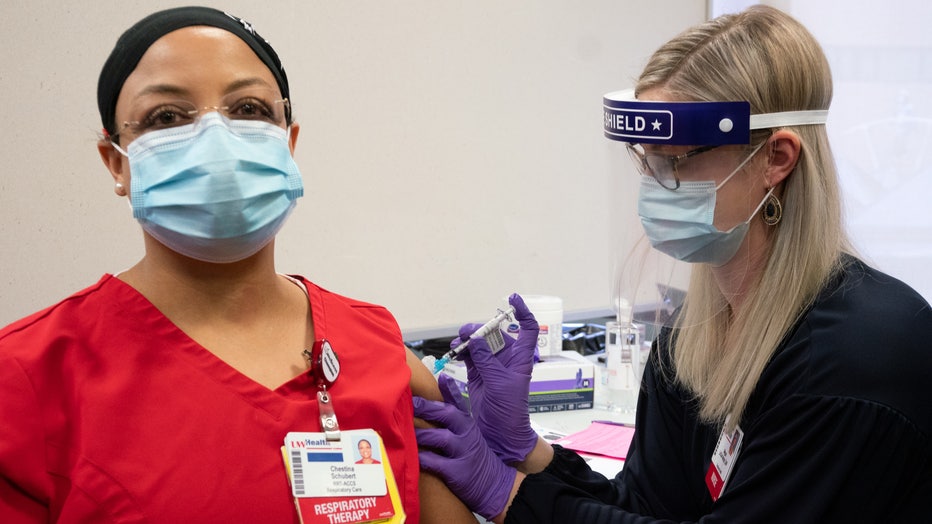
Respiratory therapist Tina Schubert became the first of UW Health’s healthcare heroes to receive the Pfizer COVID-19 vaccine at approx. 2:30 p.m. CT (Credit: UW Health/John Maniaci)
The general public will not get the vaccine for months, and authorities have issued renewed calls for patience and vigilance as the virus continues to spread and kill people in the state. About 35,000 more doses of the vaccine are expected in the state by the end of next week.
UW Health tweeted a photo of Schubert being vaccinated, describing it as “a historic moment.” It also posted photos of other front-line workers getting vaccinated. The vaccine's rollout in Wisconsin is part of the largest nationwide vaccination campaign in U.S. history.
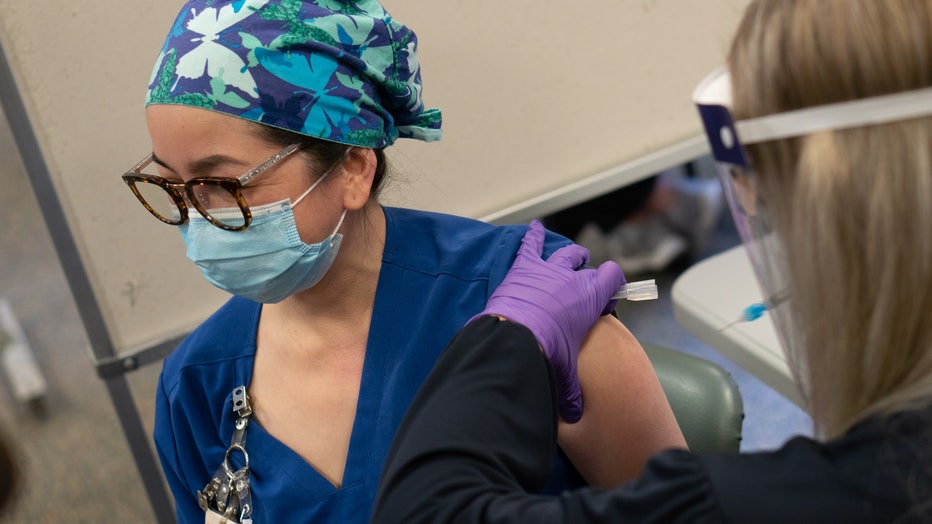
UW Health Nurse Mavic Tjardes, care team leader on one of University Hospitals COVID-19 units, became our second healthcare hero to receive the Pfizer COVID-19 vaccine (Credit: UW Health/John Maniaci)
UW Health is the health system of the University of Wisconsin-Madison and has more than 1,750 doctors and 21,000 staff at seven hospitals and more than 80 outpatient sites, according to its website.
The 3,900 doses received by UW Health were transported in ultra-cold storage freezers and stored for distribution. Shipments of precious frozen vials of vaccine made by Pfizer Inc. and its German partner BioNTech began arriving at hospitals around the country Monday.
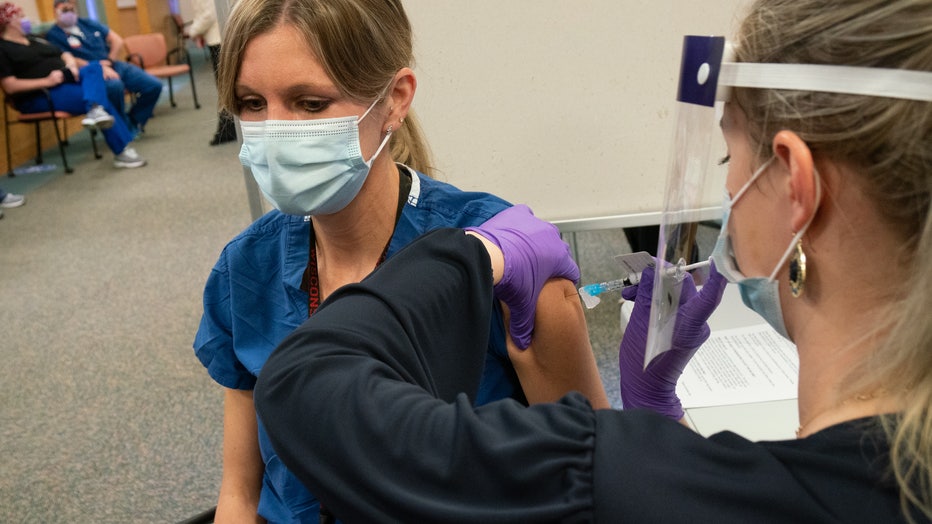
Dr. Ann Sheehy, UW Health Hospitals, she is a doctor who treats COVID-19 patients was our third healthcare hero to receive the COVID-19 vaccine UW Health Nurse Mavic Tjardes, care team leader on one of University Hospitals COVID-19 units, became our
FREE DOWNLOAD: Get breaking news alerts in the FOX6 News app for iOS or Android
“There are a lot of moving parts to this process and those parts are moving very fast right now," said Julie Willems Van Dijk, the deputy secretary of the Wisconsin Department of Health Services.
The vaccine arrived in Wisconsin as virus-related deaths grew by 12 on Monday to 4,068 and total cases increased by 2,122 to 438,895. The seven-day average of new cases was down from a peak in mid-November, but still three times as high as it was in September.
Wisconsin's death count is the 23rd highest in the country overall and it has the 31st highest death rate per capita at 75 deaths per 100,000 people, according to tracking conducted by Johns Hopkins University. There were 1,030 new cases per 100,000 people in Wisconsin over the past two weeks, which ranks 23rd in the country for new cases per capita.
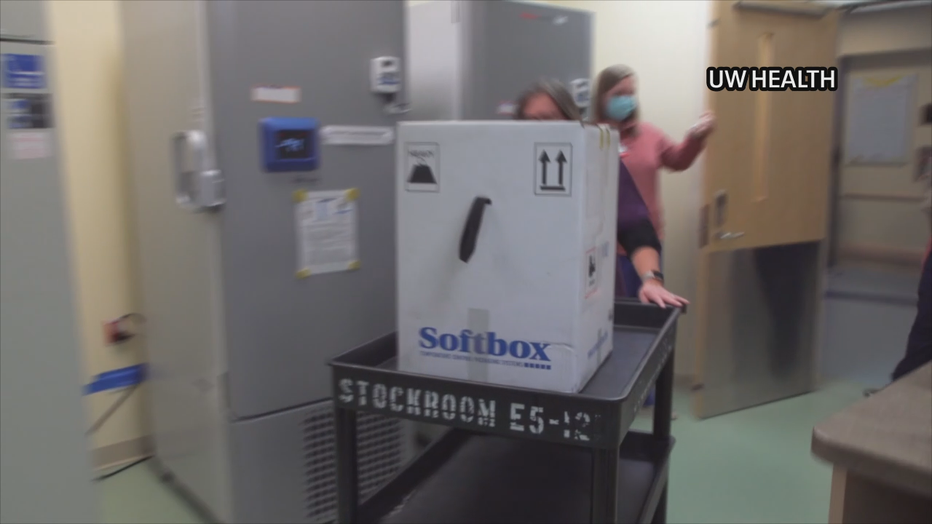
Wisconsin expected to receive 49,725 doses this week and about 15,000 doses next week. Wisconsin expects to get about 101,000 doses of a vaccine produced by Moderna — that has yet to be authorized — as soon as next week.
The goal is to have the majority of people living or working in skilled nursing facilities vaccinated by the end of January, and then the focus will turn to assisted living facilities, Van Dijk said.
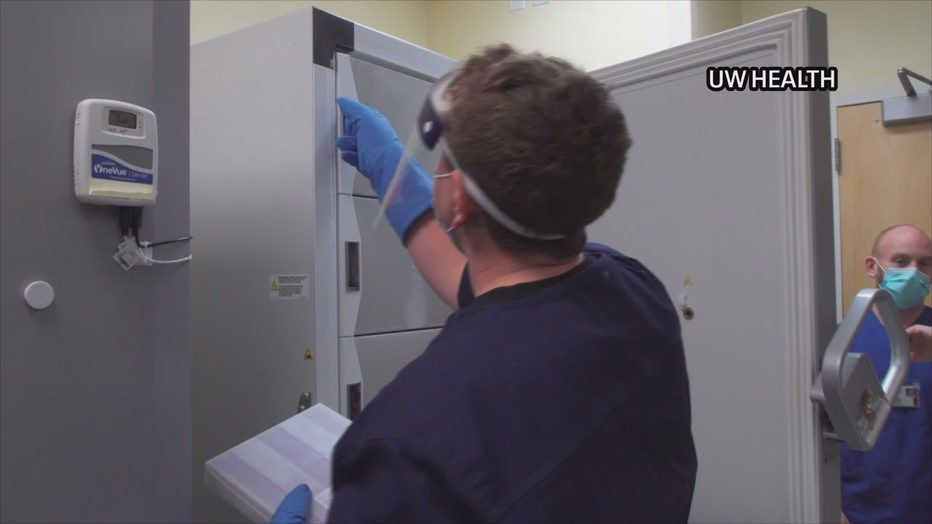
“While we are excited and ready to begin vaccinating those that experts have identified as priority populations, we must remember that this is going to be a long process for everyone,” said state health department secretary Andrea Palm. “We are asking Wisconsinites to be patient and continue to help slow the spread of the virus by staying home as much as possible, wearing a mask, physical distancing, getting tested, and washing your hands.”
The vaccine is being shipped to eight regional hubs, but state health officials said they are not saying where those hubs are located for security reasons. The state health department is working with Wisconsin Emergency Management and the Wisconsin National Guard, and local, state, and federal partners on distribution, the office of Gov. Tony Evers said.

